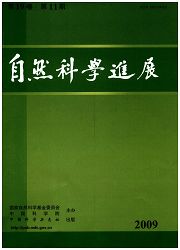

 中文摘要:
中文摘要:
14-3-3 proteins belong to a family of phosphoserine/threonine-binding modules and participate in a wide array of signal transduction and regulatory events. Our previous study demonstrated that Ta14-3-3 was significantly down-regulated in leaf and root tissues of hybrid wheat at the tillering stage. In this paper, three homoeologous Ta14-3-3 genes were cloned from common wheat (Triticum aestivum L., 2n=6x=42, AABBDD) and mapped on chromosomes 2A, 2B, and 2D, respectively. Transgenic Arabidopsis plants ectopically overexpressing Ta14-3-3 displayed shorter primary roots, delayed flowering and retarded growth rates, indicating that Ta14-3-3 acted as a growth inhibitor in Arabidopsis. In wheat, Ta14-3-3 was down-regulated in roots and leaves of hybrids as compared to their parental lines. We proposed that Ta14-3-3 proteins might regulate growth vigor in hybrid wheat.
 英文摘要:
英文摘要:
14-3-3 proteins belong to a family of phosphoserine/threonine-binding modules and participate in a wide array of signal transduction and regulatory events. Our previous study demonstrated that Ta14-3-3 was significantly down-regulated in leaf and root tissues of hybrid wheat at the tillering stage. In this paper, three homoeologous Ta14-3-3 genes were cloned from common wheat (Triticum aestivum L., 2n=6x=42, AABBDD) and mapped on chromosomes 2A, 2B, and 2D, respectively. Transgenic Arabidopsis plants ectopically overexpressing Ta14-3-3 displayed shorter primary roots, delayed flowering and retarded growth rates, indicating that Ta14-3-3 acted as a growth inhibitor in Arabidopsis. In wheat, Ta14-3-3 was down-regulated in roots and leaves of hybrids as compared to their parental lines. We proposed that Ta14-3-3 proteins might regulate growth vigor in hybrid wheat.
 同期刊论文项目
同期刊论文项目
 同项目期刊论文
同项目期刊论文
 期刊信息
期刊信息
